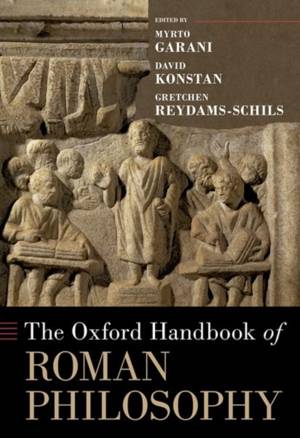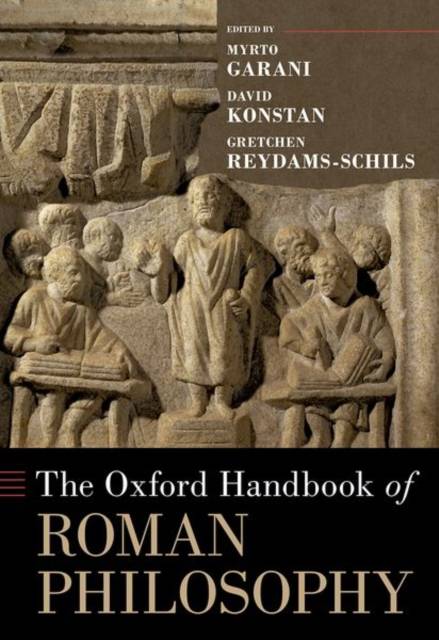
- Retrait gratuit dans votre magasin Club
- 7.000.000 titres dans notre catalogue
- Payer en toute sécurité
- Toujours un magasin près de chez vous
- Retrait gratuit dans votre magasin Club
- 7.000.0000 titres dans notre catalogue
- Payer en toute sécurité
- Toujours un magasin près de chez vous
The Oxford Handbook of Roman Philosophy
330,45 €
+ 660 points
Description
Several decades of scholarship have demonstrated that Roman thinkers developed in new and stimulating directions the systems of thought they inherited from the Greeks, and that, taken together, they offer many perspectives that are of philosophical interest in their own right. The Oxford Handbook of Roman Philosophy explores a range of such Roman philosophical perspectives through thirty-four newly commissioned essays. Where Roman philosophy has long been considered a mere extension of Hellenistic systems of thought, this volume moves beyond the search for sources and parallels and situates Roman philosophy in its distinctive cultural context. The Oxford Handbook of Roman Philosophy emphasizes four features of Roman philosophy: aspects of translation, social context, philosophical import, and literary style. The authors adopt an inclusive approach, treating not just systematic thinkers such as Cicero and Augustine, but also poets and historians. Topics covered include ethnicity, cultural identity, literary originality, the environment, Roman philosophical figures, epistemology, and ethics.
Spécifications
Parties prenantes
- Editeur:
Contenu
- Nombre de pages :
- 648
- Langue:
- Anglais
- Collection :
Caractéristiques
- EAN:
- 9780199328383
- Date de parution :
- 28-03-23
- Format:
- Livre relié
- Format numérique:
- Genaaid
- Dimensions :
- 181 mm x 254 mm
- Poids :
- 1133 g

Les avis
Nous publions uniquement les avis qui respectent les conditions requises. Consultez nos conditions pour les avis.





